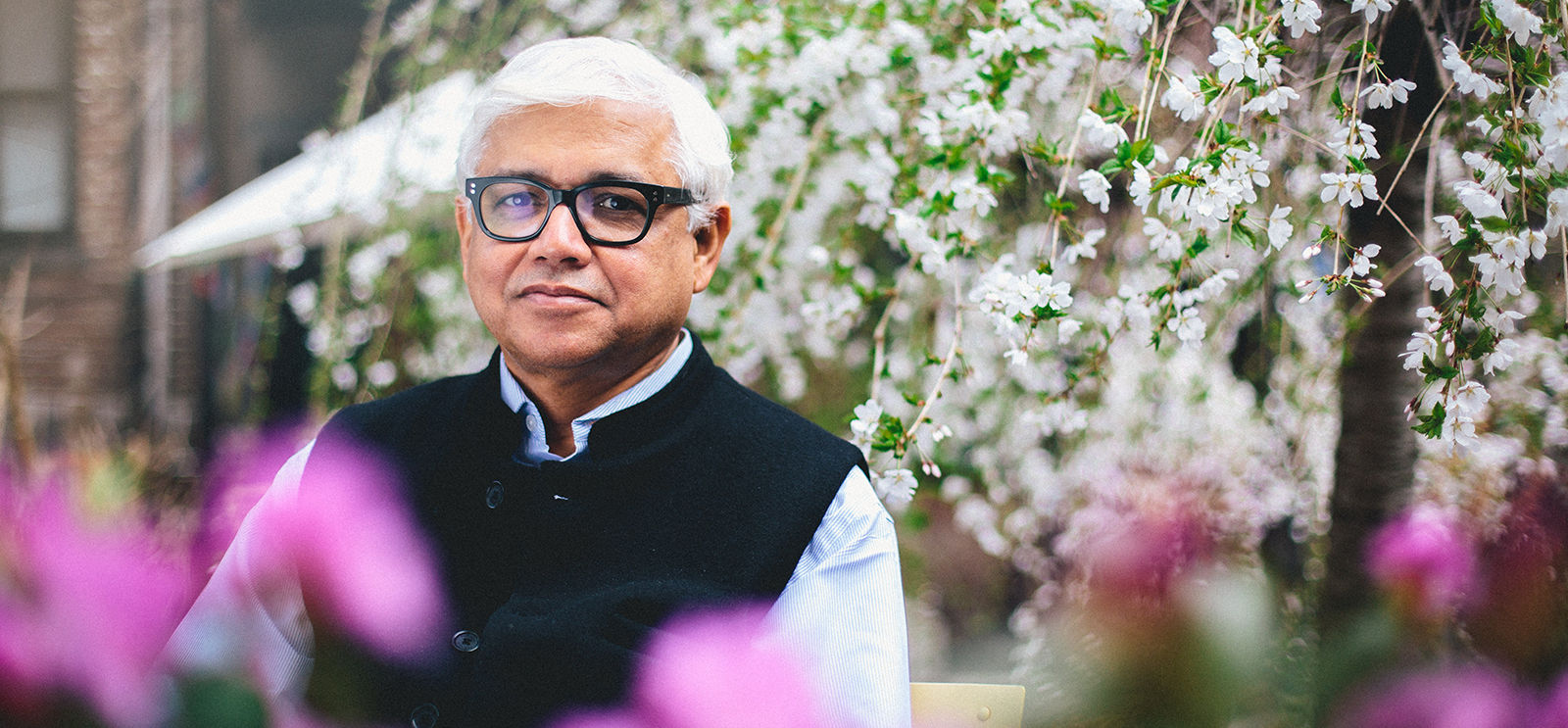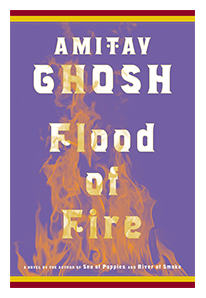
Amitav Ghosh. (Photography by Emilio Madrid-Kuser)
A conversation with 2015 Berlin Family Lecturer Amitav Ghosh.
Internationally renowned writer Amitav Ghosh will deliver the 2015 Berlin Family Lectures from September 29 to October 7 at the Logan Center. The lectures, launched in 2014, bring to campus thinkers and writers who are making fundamental contributions to the arts, humanities, or humanistic social sciences.
Ghosh was born in Calcutta and grew up in India, Bangladesh, and Sri Lanka. His fiction and nonfiction have won many prizes and have been translated into more than 20 languages. Published this August, the third volume in Ghosh’s Ibis Trilogy, Flood of Fire (Farrar, Straus & Giroux, 2015), follows a group of characters in and between India and China around the 19th-century Opium War.
Ghosh spoke to the Magazine over email about his writing, the place of fiction in the world, and his upcoming lectures.
 Admission to all four lectures is free. Advance registration is requested.
Admission to all four lectures is free. Advance registration is requested.
The title of your series of lectures is “The Great Derangement: Fiction, History, and Politics in the Age of Global Warming.” Tackling only the first part of the title, how do you see fiction, history, and politics interweaving? Are there particular writers you will discuss?
The ways in which we think about the world are powerfully shaped by narratives. In that sense narratives are essential to fiction and history as well as politics—and some of these narratives do, of course, have an important bearing on the ways in which we think about and respond to climate change. I will indeed discuss many writers, including Flaubert, John Updike, Abdel Rahman Munif, and Bankim Chandra Chatterjee.
Moving on to the second part, the focus on climate change seems like a notable shift in your thought. What role does the fiction writer have to play in addressing this concern? Can fiction address such issues in ways that nonfiction can’t?
My interest in global warming grew, in large part, out of my interest in the Sundarbans, the great mangrove forest of Bengal (my novel The Hungry Tide is set there). This is one of the world’s most threatened ecosystems, and the effects of sea-level rise have been visible there for a long time.
Do you feel obligated to tackle broad social issues like this one in your fiction? Do you approach them differently there than in your nonfiction?
I don’t feel any obligation to tackle broad social issues. But global warming, as I see it, is much more than that: it poses profound challenges to many of our prevalent modes of thought and expression. Neither fiction nor nonfiction can be exempted from this interrogation.
Nonfiction and scholarly work on global issues like climate change, colonialism and empire, and economic disparities crosses national boundaries. But in literature, especially in the United States, we tend to be more parochial in our reading, paying little attention to writers whose work is only available in translation. What are the costs of this lack of participation in a global literature, and what are the prospects for change?
I think the questions we need to ask are these: is there something inherent in contemporary fiction that makes it parochial? And if that is the case, then what does it imply for fiction in relation to global warming?
In nonfiction writing, the author has a responsibility to be accurate, at least to the extent possible from any given perspective. What is the fiction writer’s responsibility?
I think of nonfiction as analogous to pottery. The facts are the clay and writers have an absolute obligation not to tamper with that material. Writers are free however to give that material whatever shape they wish. Fiction is completely different in that the writer invents both the material and the form.
Your essay “The Ghosts of Mrs. Gandhi” quotes the Bosnian writer Dzevad Karahsan as saying, “The decision to perceive literally everything as an aesthetic phenomenon—completely sidestepping questions about goodness and truth—is an artistic decision. That decision started in the realm of art, and went on to become characteristic of the contemporary world.” Does art have the power to reverse that decision?
Art certainly has the power to question that decision.
Or, to put a finer point on it, where does the distinction between citizen and artist lie? When do you, personally, act as a citizen and when do you act, or react, as an artist?
As citizens we all respond constantly to all sorts of civic issues: this is as it should be. To respond to anything artistically is much more difficult because the response has to filter through so many different layers of the self.
